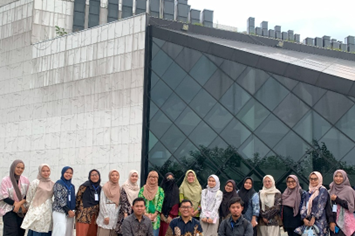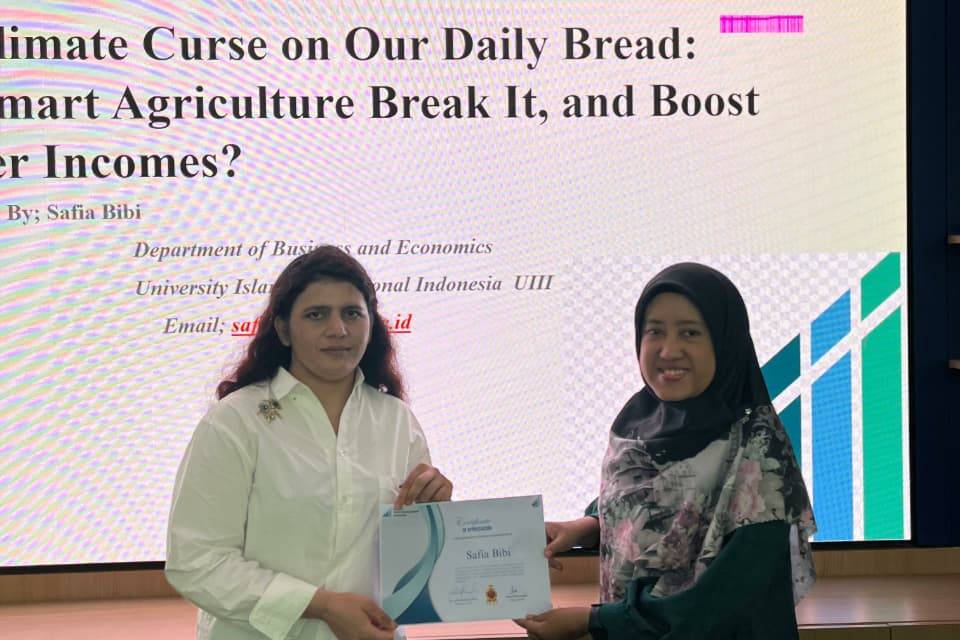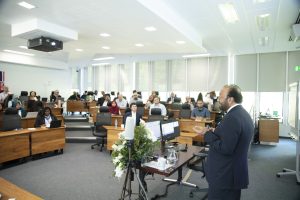
It is often an imposing feat to conjunct the separate domains of application and the conceptual framework of Islamic values which embed economic practices. Requiring professional experiences and an adequate understanding of its principles; only then can the complex structure gap separating both be breached to achieve harmony and achieve the goals. With its volatile profitability view and skepticism, Islamic finance has been re-evaluated to bring more immersing collateral benefits to actualize the notion of “rahmatan lil ‘alamin”, empowering people and preserving the planet for more sustainable, inclusive reciprocity between humans and nature.
Attempting to crystalize more practical grasp of Islamic finance, the Faculty of Economics and Business of UIII sent me with my friends Ananda Olga Ulima and Siti Nur Aisyah to join Durham Islamic Finance Summer School (DIFSS) 2022, taking place at Durham University of Business School, UK. To obtain this precious “ticket,” we were selected by submitting extended abstracts, gauging our interest and thoughts on Islamic finance and our language proficiency. Despite encountering a severe and uncertain conditions on the release of the visa, we finally could go being a part of global Islamic finance enthusiasts.
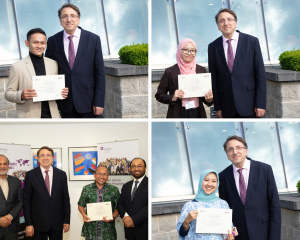
I sincerely admit that all materials are gold since leading financiers and bankers across the world, say Prof Habib Ahmed from DCIEF, Mahmoud Mohieldin from IMF, Dalal Assaaolui from HBKU, Prof Hylmun Izhar from IsDB, and many more, delivered the dynamic growth and perspective of Islamic finance from their respective fields. Extracted from cutting-edge research and publishing in Islamic Finance, we learned intensively Islamic Financial contracts and their applications, venture capital, and fintech in the context of Islamic finance, Islamic digital economy, liquidity management practices in Islamic financial institutions, Islamic social welfare institutions and socio-economic development, and Islamic finance industry’s next frontier: inclusive economies, institutions, and finance.
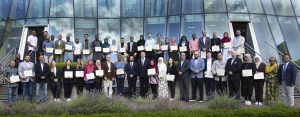
Frankly, being capable of partaking in this summer school put me in a different light on Islamic finance, shifting me from being apathetic to Islamic finance perspective to trusting better toward the remarkable but ‘hidden’ potential of Islamic finance. Bridging the gap and building the bridge, an overall viewpoint, I can never be grateful, given a chance to network with like-minded people and immerse myself in gaining a solid grounding in Islamic finance via this summer school.
*Written by M. Ismail S, a master student of Economics program year 2021/2023.
